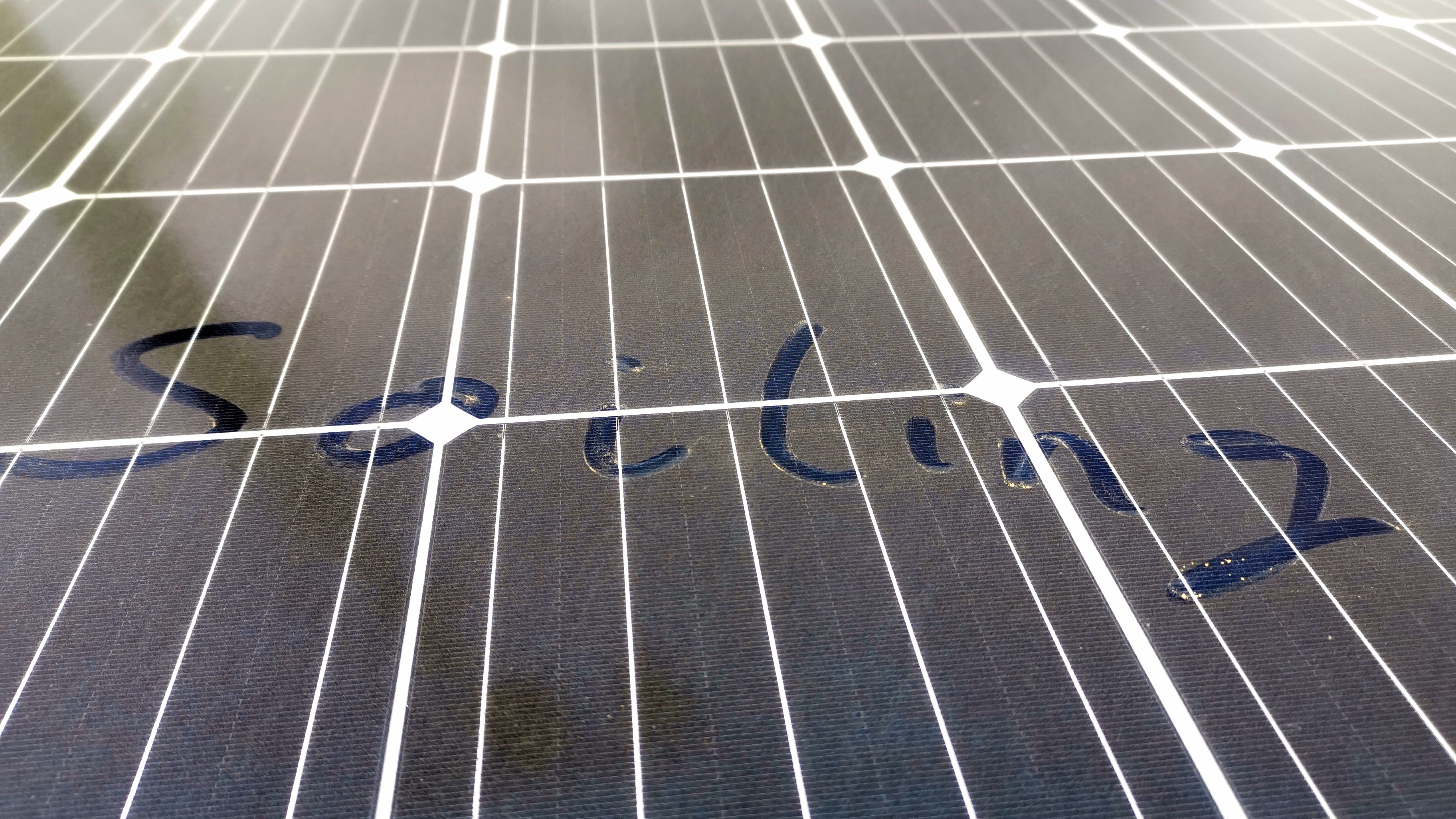
How can losses due to soiling be recuced when using photovoltaic modules in desert regions? A team led by Hamed Hanifi from the Fraunhofer Center for Silicon Photovoltaic CSP presented new solutions to this question at the EU PVSEC conference. The approach, which focuses on an innovative interconnection concept, optimized cell sizes and an adapted mounting orientation of the modules, was awarded a Best Poster Award of the conference.
Photovoltaic modules can deliver particularly high yields in desert areas thanks to the high level of sun irradiation. In this environment, however, they suffer, among other things, from frequent pollution from sand and dust, so-called "soiling". Performance losses due to soiling can reach more than 20 percent per month if the modules are not cleaned. In addition, an inhomogeneous soiling of the modules, i.e. a different accumulation of dust on the module surface, for example at the corners and bottom of the modules, may lead to total power loss.
Researchers at Fraunhofer CSP have been working intensively on anti-soiling measures for several years and have found that changes in the cell sizes, an adapted electrical interconnection and special mounting orientation of the modules can reduce losses. »We tested the performance of three module designs with full and half cells with different connection designs under different inhomogeneous soiling conditions, combining simulations and data from the experiment. We were able to show that losses can be reduced by up to 65 percent in an extreme case and minimize the current mismatch with the other modules within an array significantly," says Hamed Hanifi, research associate at Fraunhofer CSP and first author of the poster „Novel PV module interconnection design and mounting orientation to reduce inhomogenous soiling losses in desert regions“. Further authors were Muhammad Zahid Khan, Dr. Bengt Jäckel, Dr. Christian Hagendorf und Klemens Ilse of Fraunhofer CSP, Dr. Amir Abdallah (Qatar Energy and Environmental Research Institute QEERI), and Prof. Dr. Jens Schneider (Fraunhofer Center for International Management and Knowledge Economy IMW).
In the programme of the EU PVSEC, which otherwise brings together the leading photovoltaic experts at changing locations throughout Europe and this time took place from 7-11 September 2020 as an online event, the Fraunhofer CSP was represented with three further posters and four lectures. »I am very happy about the Best Poster Award for our team. The award, as well as the stimulating discussions we had at EU PVSEC on this topic, demonstrate the importance of anti-soiling solutions in order to exploit the potential of renewable energies in desert regions even more effectively. Our approach has the advantage over coating solutions that the protection is permanently maintained and is not prone to degradation, that can appear with coatings due to abrasion and wear processes," said Hanifi after the closing ceremony of the conference.